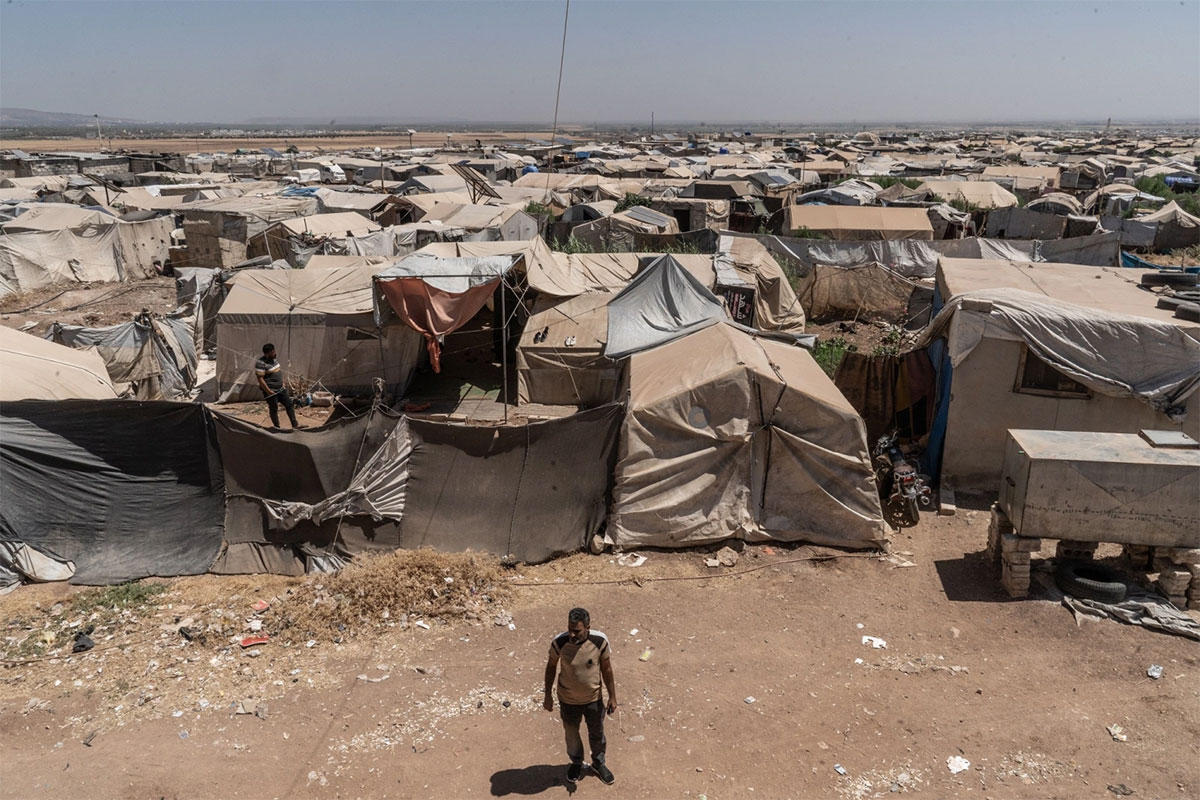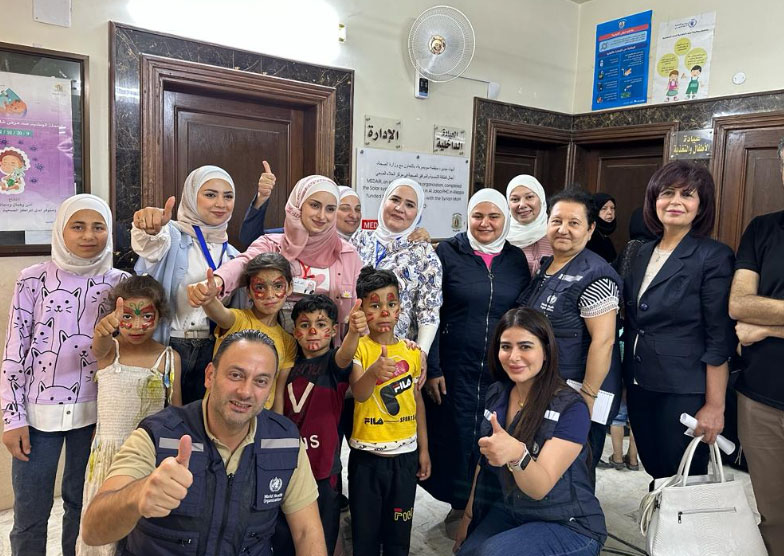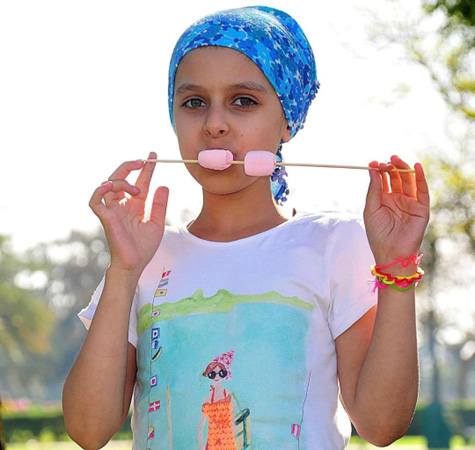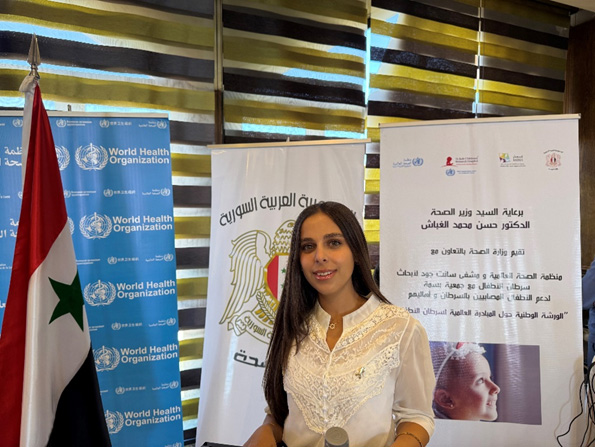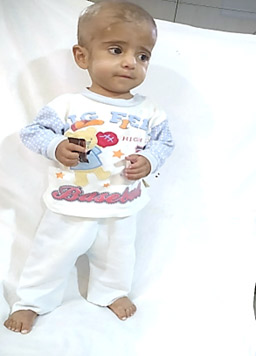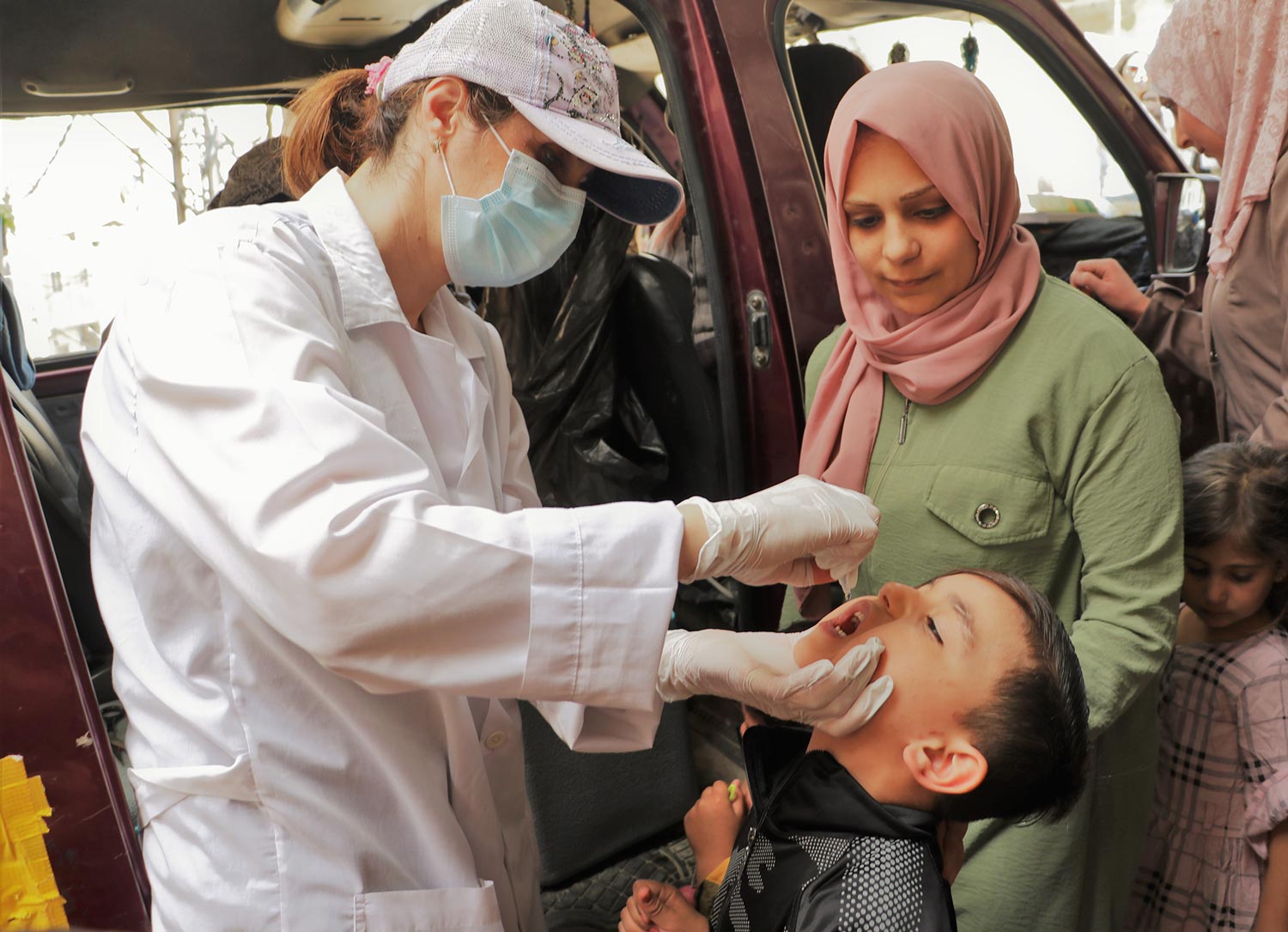 Immunization activity in Rural Damascus, Syria, 2024. Photo credit: WHO Syria23 July 2024, Damascus – The Syrian Ministry of Health (MOH), supported by WHO, UNICEF, and Gavi, the Vaccine Alliance, has launched the second round of Big Catch-Up vaccination activity this week.
Immunization activity in Rural Damascus, Syria, 2024. Photo credit: WHO Syria23 July 2024, Damascus – The Syrian Ministry of Health (MOH), supported by WHO, UNICEF, and Gavi, the Vaccine Alliance, has launched the second round of Big Catch-Up vaccination activity this week.
The Big Catch-Up is an initiative launched by global health partners in April 2023 to address the decline in childhood vaccination rates observed during the COVID-19 pandemic as a result of overburdened health systems and disrupted access to medical care. This is the second phase in Syria, following an initial phase in April this year.
During this round, about 2 million children under the age of five are targeted to be screened, and more than 300,000 are expected to be vaccinated with different childhood vaccines. The activity aims to reach children through fixed sites and mobile vaccination teams across the selected areas of coverage, with over 7,500 health workers deployed. In addition, a measles campaign will be conducted in 68 districts identified as priority districts for measles, where children will receive measles rubella / measles mumps rubella (MR/MMR) vaccines regardless of their vaccination status.
To ensure vaccine uptake, MOH Syria and partners are also rolling out proactive community engagement activities to promote vaccination of children, including through partnership with community leaders, social and mass media, as well as other influencers.
“The Big Catch-Up initiative in Syria is not only an opportunity to immunize and protect all children up to 5 years old, including zero dose children, but is also aimed at strengthening routine immunization from planning, service delivery and to monitoring systems. Gavi and our partners are committed to continuing supporting the Ministry of Health towards a strong and resilient immunization national programme, which is the essential pillar for combating disease outbreaks,” said Véronique Maeva Fages, the Senior Country Manager for Syria at Gavi.
“The Big Catch-Up initiative is a vital step in overcoming the setbacks caused by the COVID-19 pandemic and building a stronger, more resilient health system. UNICEF remains committed to supporting the Syrian Ministry of Health and our partners in this critical effort to safeguard the future of children in Syria," said Yasumasa Kimura, UNICEF Representative in Syria.
Dr Iman Shankiti, acting WHO Representative to Syria, echoed and emphasized the importance of these efforts: “Our commitment to the Syrian people is unwavering, and we stand together with our health partners to strengthen the immunization programme as a cornerstone of achieving universal health coverage”.
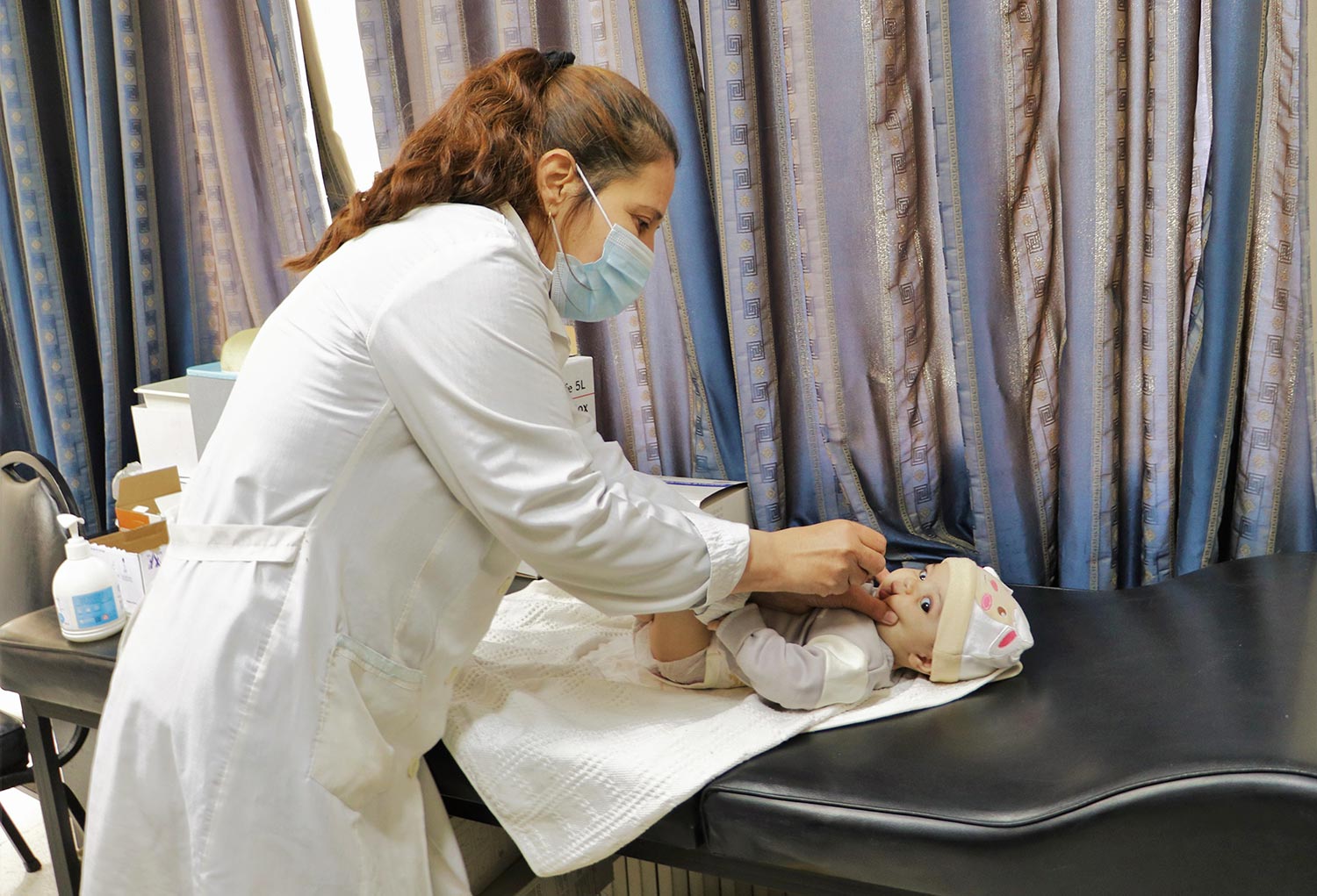 Immunization activity in Rural Damascus, Syria, 2024. Photo credit: WHO SyriaThrough global catch-up efforts supported by GAVI and other donors, partners aim to help lower-income countries close immunization gaps, restore immunization coverage to pre-pandemic levels, and strengthen immunization systems in the longer term.
Immunization activity in Rural Damascus, Syria, 2024. Photo credit: WHO SyriaThrough global catch-up efforts supported by GAVI and other donors, partners aim to help lower-income countries close immunization gaps, restore immunization coverage to pre-pandemic levels, and strengthen immunization systems in the longer term.
In Syria, the first round managed to screen the vaccination status of more than 1.8 million children and vaccinated zero-dose and unvaccinated children with the needed vaccines. Additionally, 1.8 million received the Polio vaccine (bOPV) and 1 million received Vitamin A regardless of their vaccination status.
The second round of the Big Catch Up activity coincides with a joint high-level mission by WHO, UNICEF, and Gavi, the Vaccine Alliance, to Syria. The mission is aimed at understanding the status of the current immunization programme and continuing dialogue on longer-term sustainable solutions in vaccine procurement and financing.
The next round of the Big Catch-Up initiative is slated for October this year.
About WHO
The World Health Organization works with 194 Member States across six regions and from more than 150 offices to provide global leadership in public health, promote health, keep the world safe, and serve the vulnerable. Our goal for 2019-2023 is to ensure that a billion more people have universal health coverage, to protect a billion more people from health emergencies, and provide a further billion people with better health and wellbeing. For more information about WHO and its health agenda, visit www.who.int.
About UNICEF
UNICEF promotes the rights and wellbeing of every child, in everything we do. Together with our partners, we work in 190 countries and territories to translate that commitment into practical action, focusing special effort on reaching the most vulnerable and excluded children, to the benefit of all children, everywhere.
For more information about UNICEF and its work for children, visit www.unicef.org. Follow UNICEF on Twitter and Facebook.
About Gavi, the Vaccine Alliance
Gavi, the Vaccine Alliance is a public-private partnership that helps vaccinate more than half the world’s children against some of the world’s deadliest diseases. The Vaccine Alliance brings together developing countries and donor governments, the World Health Organization, UNICEF, the World Bank, the vaccine industry, technical agencies, civil society, the Bill & Melinda Gates Foundation, and other private sector partners. View the full list of donor governments and other leading organizations that fund Gavi’s work here.
Since its inception in 2000, Gavi has helped to immunize a whole generation – over 1 billion children – and prevented more than 17.3 million future deaths, helping to halve child mortality in 78 lower-income countries. Gavi also plays a key role in improving global health security by supporting health systems as well as funding global stockpiles for Ebola, cholera, meningococcal, and yellow fever vaccines. After two decades of progress, Gavi is now focused on protecting the next generation, above all the zero-dose children who have not received even a single vaccine shot. The Vaccine Alliance employs innovative finance and the latest technology – from drones to biometrics – to save lives, prevent outbreaks before they can spread, and help countries on the road to self-sufficiency. Learn more at www.gavi.org and connect with us on Facebook and X (Twitter).
Media contacts:
Gavi: Collins Mwai
Cette adresse email est protégée contre les robots des spammeurs, vous devez activer Javascript pour la voir.
UNICEF: Gulyalek Soltanova
Cette adresse email est protégée contre les robots des spammeurs, vous devez activer Javascript pour la voir.
WHO: Tania Seburyamo,
Cette adresse email est protégée contre les robots des spammeurs, vous devez activer Javascript pour la voir.
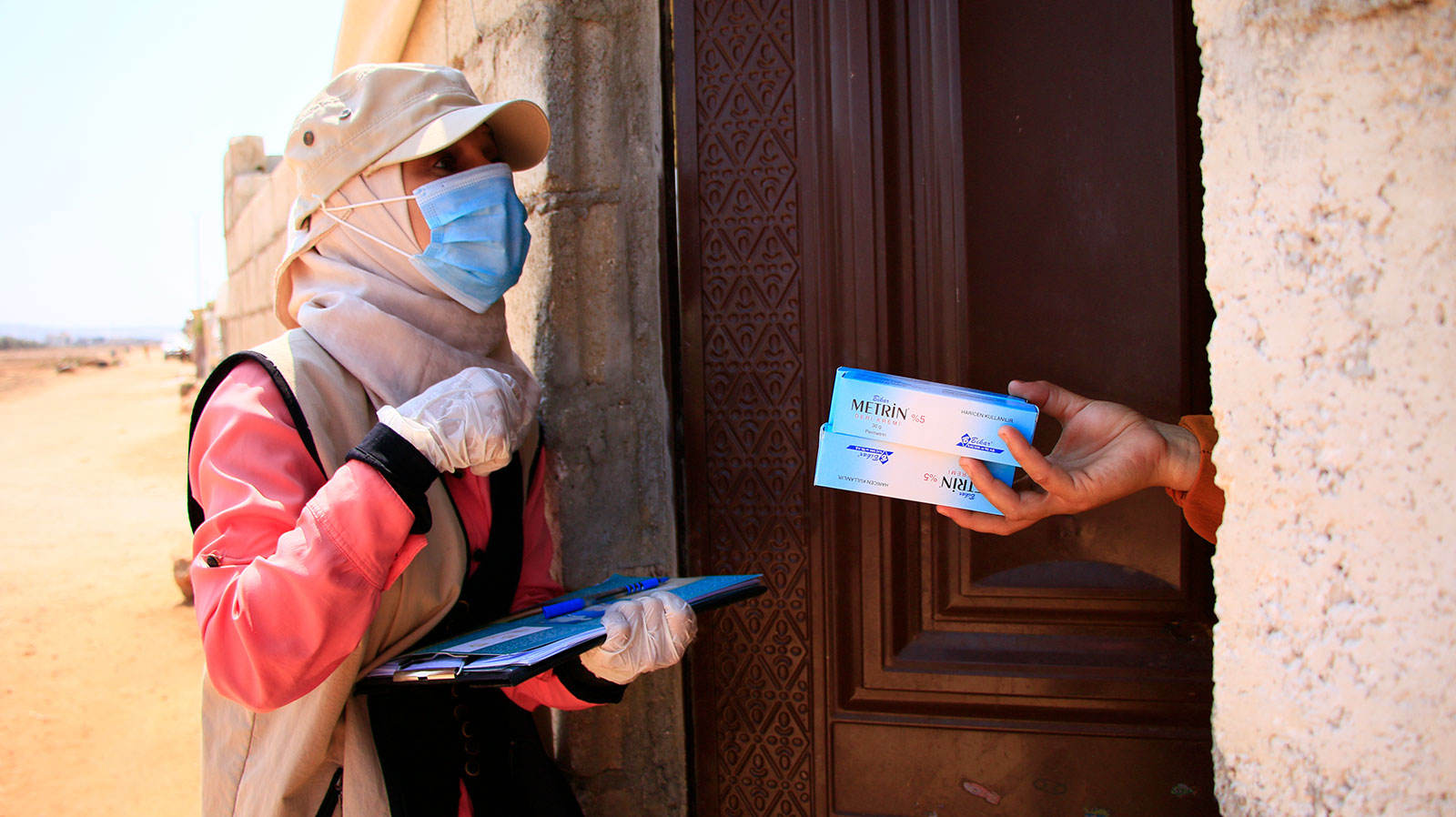 Door-to-door distribution of permethrin cream in camps as part of the scabies response in north-west Syria. Photo credit: © Al-Sham Humanitarian Foundation 4 August 2024 – In north-west Syria, lack of sanitation services, compounded by limited water supply and overcrowding, creates the ideal conditions for infectious diseases to spread. Scabies is among the infections of concern in north-west Syria, especially in densely populated camps as it is transmitted person to person through close skin contact.
Door-to-door distribution of permethrin cream in camps as part of the scabies response in north-west Syria. Photo credit: © Al-Sham Humanitarian Foundation 4 August 2024 – In north-west Syria, lack of sanitation services, compounded by limited water supply and overcrowding, creates the ideal conditions for infectious diseases to spread. Scabies is among the infections of concern in north-west Syria, especially in densely populated camps as it is transmitted person to person through close skin contact.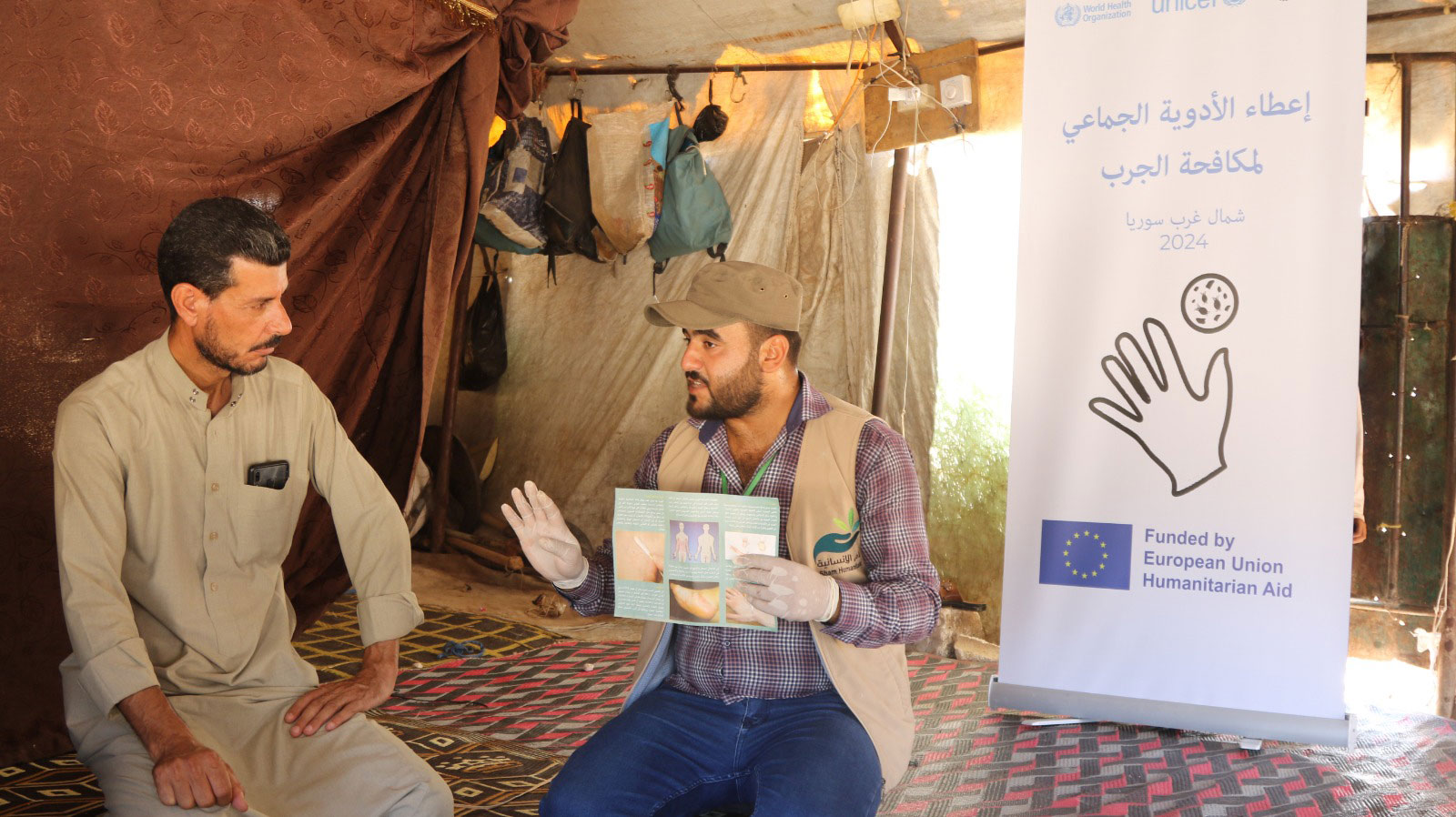 Community health workers raise awareness among families living in camps on how to treat and prevent scabies. Photo credit: © Al-Sham Humanitarian Foundation The campaign will last for 21 days and target more than 180 000 people in 71 camps and 7 communities. Partners have also distributed UNICEF-procured hygiene kits and trained community workers and hygiene promoters in how to treat scabies and prevent its further spread.
Community health workers raise awareness among families living in camps on how to treat and prevent scabies. Photo credit: © Al-Sham Humanitarian Foundation The campaign will last for 21 days and target more than 180 000 people in 71 camps and 7 communities. Partners have also distributed UNICEF-procured hygiene kits and trained community workers and hygiene promoters in how to treat scabies and prevent its further spread.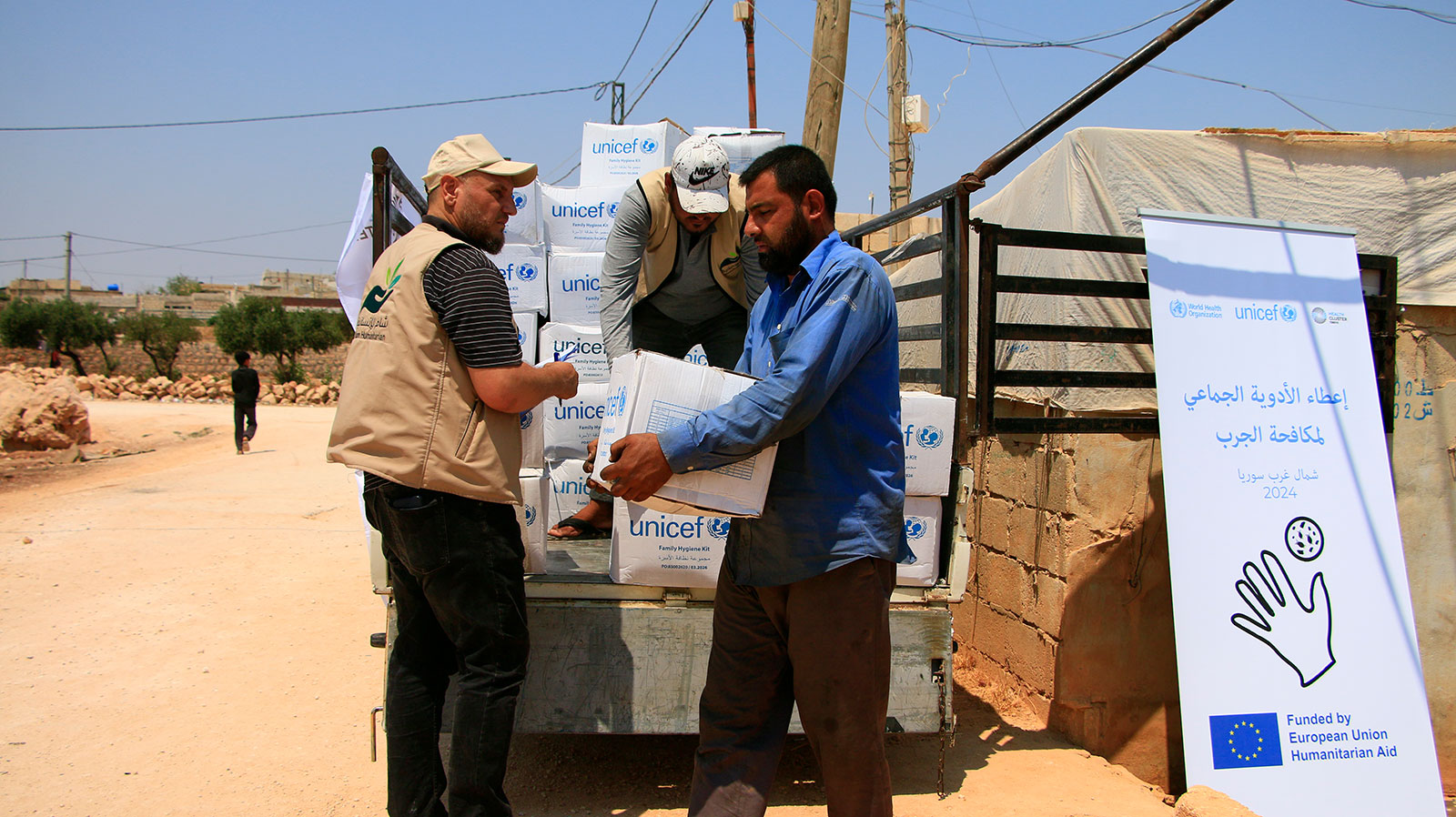 UNICEF-procured hygiene kits are distributed as part of the scabies response in north-west Syria. Photo credit: © Al-Sham Humanitarian Foundation WHO carried out a comprehensive scabies community survey exercise in north-west Syria in December 2023. This revealed a high prevalence of scabies, surpassing the 10% community transmission threshold set by WHO, with higher rates reported in camps.
UNICEF-procured hygiene kits are distributed as part of the scabies response in north-west Syria. Photo credit: © Al-Sham Humanitarian Foundation WHO carried out a comprehensive scabies community survey exercise in north-west Syria in December 2023. This revealed a high prevalence of scabies, surpassing the 10% community transmission threshold set by WHO, with higher rates reported in camps.




